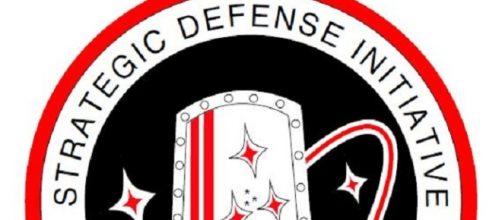One of the more substantive issues that was discussed during the Republican presidential debate in Detroit concerned the latest threat to come out of North Korea. That country’s mad, bad, and dangerous to know leader Kim Jong-Un has ordered his nuclear arsenal prepared and is firing missiles in the vicinity of Japan. The United States and South Korea have started military maneuvers, partly as a result of North Korea’s actions. Discussions on deploying the Terminal High Altitude Area Defense (THAAD) system in South Korea have also become urgent.
Sen Ted Cruz, R-Texas would go one step further. He proposed reviving the idea of space-based missile defenses that were part of the Reagan era Strategic Defense Initiative program.
SDI, or as some called it “Star Wars” was a proposal to deploy anti-missile platforms in space in order to stop a nuclear attack by the Soviet Union. The idea was that a layered defense, which would start in the boost phase with lasers and missiles shooting down ICBMs as they cleared their silos, would lift the threat of global thermonuclear war from the planet.
SDI proved to be quite controversial and never got out of the ground test phase. However, the threat of it being deployed is credited by many historians with forcing the Soviets to agree to massive nuclear arms reduction agreements and, ultimately, helping to destroy the USSR as it attempted an arms buildup that it could not ultimately afford.
Reviving SDI to counter just North Korea’s nuclear threat may seem a little bit of overkill. However, Cruz may be thinking a little more globally. China is also conducting a nuclear buildup. Despite the nuclear weapons agreement, the prospect of a nuclear Iran still remains potent. Russia also retains a nuclear arsenal. A modern day SDI system would be designed to address the worldwide nuclear threat.
The beauty of the plan is that even the prospect of a space based missile defense system would place enormous pressure on America’s various enemies, just as the 1980s version did the Soviet Union. The proposal is a practical expression of Cruz’s desire to be the second coming of Ronald Reagan.

